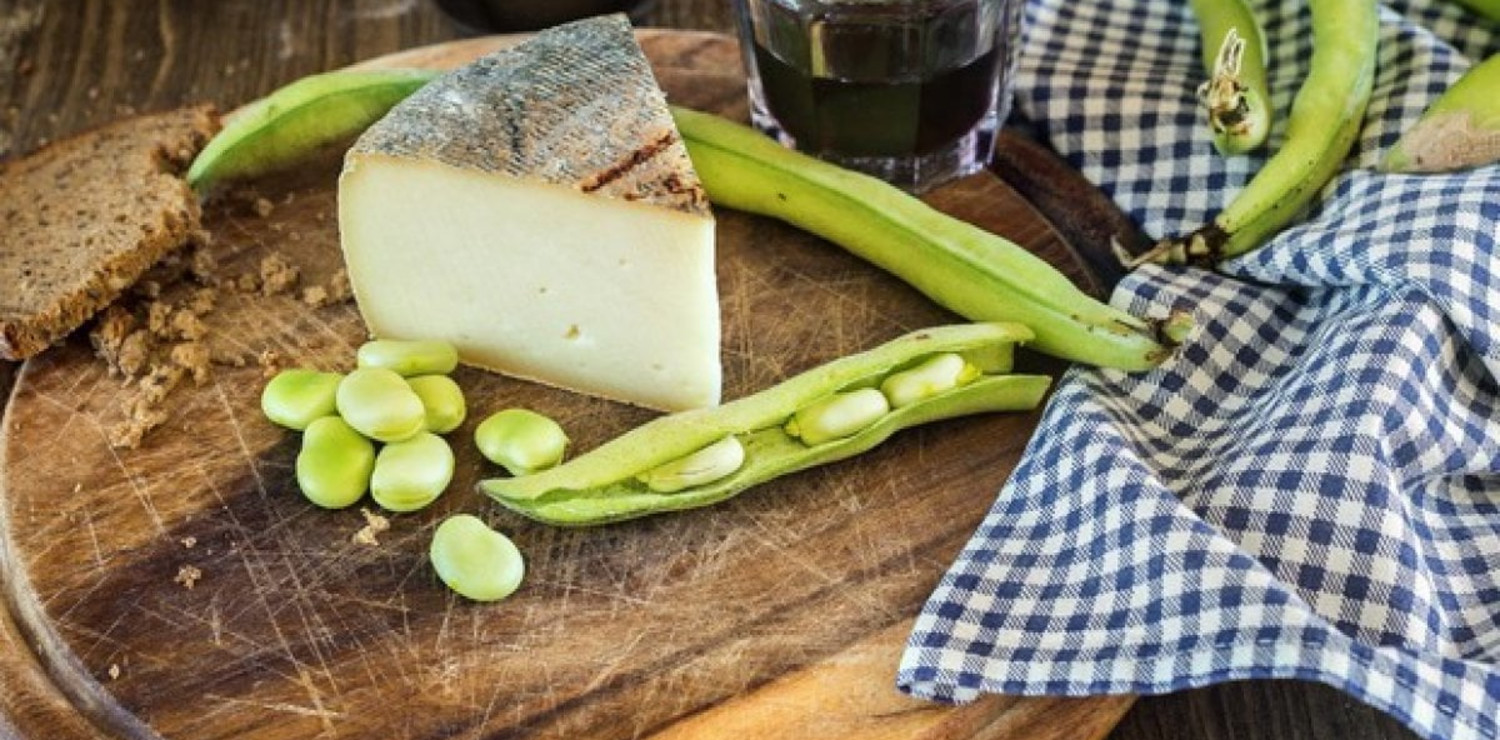Vegetables to pair with Pecorino Toscano for a perfect spring lunch
La tradizione toscana arriva in aiuto: baccelli, carciofi, asparagi e radicchi selvatici. Ecco come servirli
Spring has finally arrived! The gardens of Tuscany are blooming with delicious vegetables. Here are the four spring vegetables which, in terms of taste and tradition, go perfectly with the Tuscan cheese par excellence, Pecorino.
1_ TOMATOES
Before pairing, a premise is necessary. The term "baccelli" (pods) in Italy means the shells of leguminous plants, but in Tuscany pods mean broad beans, including the seeds inside. They are the spring legume par excellence, and the rigorous Tuscan approach is to serve them raw with slices of fresh or semi-mature Pecorino cheese.
They have energising and diuretic properties, as well as being laxative, thanks to the fibre they contain. Compared to other legumes, pods have the advantage of being able to be eaten raw: as is well known, in fact, vegetables retain their beneficial and nutritional properties if they are not cooked.
2_ARCIOFS
They are perfect served raw, in pinzimonio, with fresh Pecorino cheese. Some of the best artichokes produced in Tuscany include the Carciofo Violetto, which is widespread throughout the region, and the Carciofi Terom, grown in the Val di Cornia, a sub-species of the violet artichoke.
Artichokes help cleanse the liver, are rich in fibre and other important nutrients for the body, such as calcium, potassium and iron. Very often this vegetable is recommended as a 'meal-breaker' for those on a diet: due to its low calorie content, it is an excellent snack between meals. To mitigate the slightly bitter aftertaste, it is usually seasoned with a little lemon juice and eaten raw, so that it retains all its properties.
3_WILD ASPARAGUS
Wild asparagus is a diuretic vegetable par excellence, as well as being calorie-free and rich in vitamins. Because of their high potassium content, asparagus is very good for the heart and muscles in general. Wild asparagus is much tastier than cultivated asparagus and can be picked during walks in the hills near the dry stone walls that mark the boundaries of farms along country roads. A wild asparagus omelette is ideal in a picnic menu that also includes a classic piece of Tuscan Pecorino cheese.
4_WILD ASPARAGUS
If you are out for a relaxing walk in the hills or countryside in springtime, you will have seen someone bent over the grass picking up green shoots. It's an old habit of our grandparents to go for radicchio and now it seems to be back in vogue. You have to know what to pick and be taught well by those who are more expert. The result is a bouquet of flavours and aromas in a dream salad, ideal for accompanying Pecorino. Here we limit ourselves to suggesting the types to hunt and giving you a few tips on how to recognise them: Dandelion: the superstar of edible wild herbs, its leaves are "toothed", which is why one of its common names is "dandelion". Common poppy: The young shoots of the leaves are very good and mildly flavoured (both raw and cooked). The leaves should be harvested before flowering. Ribwort Plantain: a very common herb along paths and in fields, with leaves arranged in a rosette close to the ground, elongated or more oval in shape. It can be easily recognised because the leaf has five strong veins. The tenderest leaves of the central rosette are harvested before flowering. Very rich in potassium and magnesium salts. Good both raw, as an addition to salads, and cooked as a side dish or in soups. Wild rocket: Rocket is a somewhat rarer herb and it is a real stroke of luck to discover it. It is a small, bushy plant that can be found at the edge of paths and in sunny, uncultivated fields. It has small, dark green leaves that are exceptionally tasty and spicy. The tenderest leaves are harvested and can be added to ordinary salads to give a tasty touch to the dish. Caution: never pick herbs along roads as they may be contaminated by car exhaust or animal droppings. Never pick herbs in fields planted with vines, olives or other crops as they may be contaminated by pesticide treatments. Never pick grasses by removing the entire roots to avoid killing the plant.









